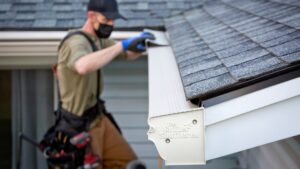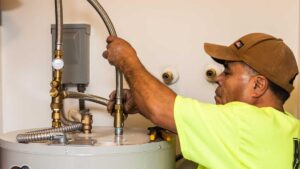Ever walked into your home, took a deep breath, and felt… off? You might think it’s just the stress of the day or a looming cold, but what if your indoor air is the real culprit? Indoor air quality is a big deal, and it’s time we give it the attention it deserves. Ready to dive into the world of indoor air? Let’s uncover the signs that your indoor air might be making you sick and how to fix it!
The Sneaky Culprits
Invisible doesn’t mean harmless. Several culprits can lurk in your home, affecting your health without you even knowing it.
- Dust and Allergens: Dust mites, pet dander, and pollen can trigger allergies and asthma. Regular cleaning helps, but these tiny particles are persistent.
- Mold and Mildew: Mold loves damp, dark places. Bathrooms, basements, and even that cozy corner behind your furniture are prime spots. Mold spores can cause respiratory problems and other health issues.
- Volatile Organic Compounds (VOCs): These are chemicals released from paints, cleaning products, and even furniture. VOCs can lead to headaches, dizziness, and long-term health effects.
- Tobacco Smoke: Secondhand smoke isn’t just annoying; it’s dangerous. It can cause respiratory infections, asthma, and even cancer.
- Radon: This radioactive gas is a silent invader. It seeps through cracks in the foundation and is the second leading cause of lung cancer.
Symptoms to Watch For
Now, let’s get into how these culprits manifest. Recognizing the symptoms can help you take action sooner rather than later.
- Respiratory Issues: Coughing, sneezing, and shortness of breath can be signs that something in the air isn’t right.
- Allergy Flare-Ups: Sudden, unexplained allergies might be due to indoor allergens.
- Headaches and Dizziness: Frequent headaches or dizziness could be a reaction to VOCs or poor air circulation.
- Fatigue and Weakness: Feeling unusually tired? It might not just be your workload; indoor air quality could be zapping your energy.
- Skin Irritation: Rashes or itchy skin can also be linked to airborne irritants.
Quick Fixes for Better Air
So, your indoor air isn’t up to par. What now? Here are some quick and effective ways to improve it.
- Regular Cleaning: Dust and vacuum regularly to keep allergens at bay. Don’t forget those hidden spots!
- Ventilation is Key: Open windows when weather permits and use exhaust fans in kitchens and bathrooms.
- Invest in an Air Purifier: A good air purifier can work wonders, especially if you suffer from allergies or asthma.
- Houseplants to the Rescue: Certain houseplants can help filter the air. Aloe vera, spider plants, and peace lilies are great choices.
- Control Humidity: Keep humidity levels in check. Use dehumidifiers in damp areas and fix leaks promptly.
- No Smoking Indoors: Make your home a smoke-free zone to protect your air quality and your health.
- Choose Low-VOC Products: When painting or renovating, opt for low-VOC products. They release fewer harmful chemicals into the air.
- Check for Radon: Test your home for radon. It’s easy and could save your life.
Long-Term Strategies for a Healthier Home
For lasting improvement, consider these strategies:
- Regular HVAC Maintenance: Change filters regularly and have your HVAC system serviced annually.
- Upgrade Your Ventilation System: Modern ventilation systems can significantly improve indoor air quality.
- Implement a Cleaning Schedule: Consistency is key. A regular cleaning routine helps maintain a healthier environment.
- Educate Your Household: Make sure everyone in your home knows the importance of maintaining good air quality.
When to Seek Professional Help
Sometimes, despite our best efforts, the air quality needs professional intervention. If you notice persistent mold, unusual smells, or worsening health symptoms, it’s time to call in the experts. Air quality professionals can assess your home and recommend solutions tailored to your specific needs.
Breathe Easy, Live Better
Taking care of your indoor air is crucial for your health and well-being. It’s not just about comfort; it’s about creating a safe haven for you and your family. By recognizing the signs and taking action, you can ensure that your home’s air is as clean and fresh as possible. So, the next time you walk into your home, take a deep breath and relax, knowing that you’re breathing easy.
Remember, a healthy home is a happy home. Stay proactive, keep learning, and enjoy the fresh air!









